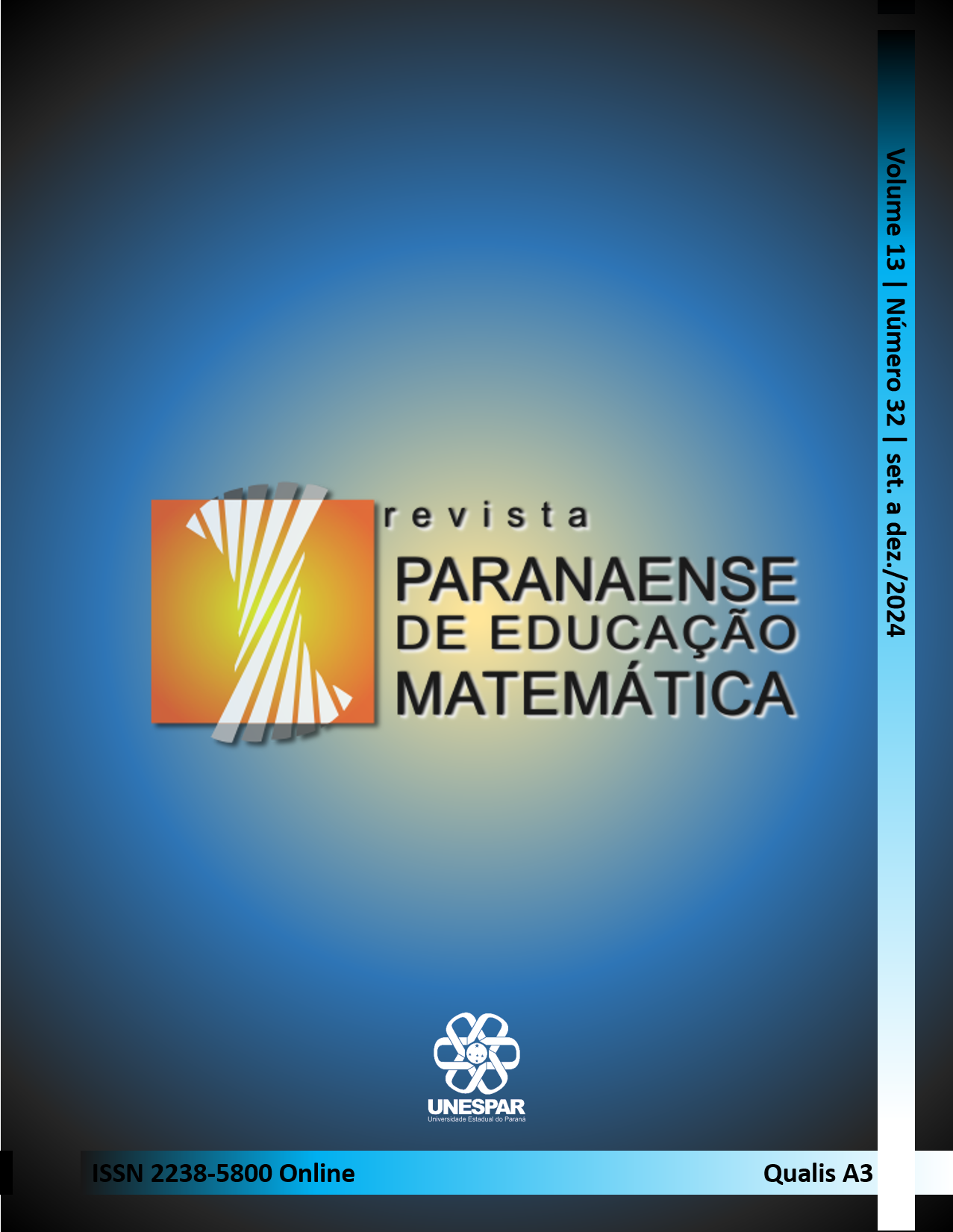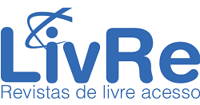CONSTRUCTIONISM, COMPUTATIONAL THINKING AND MATHEMATICAL CONCEPTS: POSSIBLE INTERLOCUTIONS FROM AN PRODUCING DIGITAL GAMES EXPERIENCE
interlocuções possíveis a partir de uma experiência de produção de jogos digitais
DOI:
https://doi.org/10.33871/rpem.2024.13.32.9571Abstract
This article aimed to investigate possibilities for mathematical learning and the development of Computational Thinking skills, in a Constructionist learning environment, from the production of digital games. The data discussed were produced in a Scientific Initiation project, with high school students from the Federal Institute of Mato Grosso do Sul, in which students produced different games using the Scratch software. Based on theoretical elements about Constructionism and Computational Thinking, the article discusses the production process of one of the games produced by the students. It was possible to observe that the games production process, in a constructionist environment, provided students with the opportunity to mobilize and construct mathematical concepts, as well as to develop Computational Thinking skills.
Downloads
References
AZEVEDO, G. T. de. Construção de conhecimento matemático a partir da produção de jogos digitais em um ambiente construcionista de aprendizagem: possibilidades e desafios. 2017. Dissertação (Mestrado em Educação em Ciências e Matemática) Instituto de Matemática e Estatística. Universidade Federal de Goiás. Goiânia.
AZEVEDO, G. T. de. Processo formativo em matemática: invenções robóticas para o Parkinson. 2022. Tese (Doutorado em Educação Matemática) – Instituto de Geociências e Ciências Exatas. Universidade Estadual Paulista. Rio Claro.
BARCELOS, T. S. Relações entre o pensamento computacional e a matemática em atividades didáticas de construção de jogos digitais. 2014. Tese (Doutorado em Ensino de Ciências e Matemática) – Universidade Cruzeiro do Sul. São Paulo.
BRASIL. Lei de Diretrizes e Bases da Educação Nacional, LDB 9394/1996. Brasília: Senado Federal, 2ª ed., 2018. Disponível: <https://www2.senado.leg.br/bdsf/bitstream/handle/id/544283/lei_de_diretrizes_e_bases_2ed.pdf>. Acesso em: 10 jun. 2024.
BRASIL. Base Nacional Comum Curricular. Brasília: Ministério da Educação, 2018. Disponível em: <http://basenacionalcomum.mec.gov.br/abase/#medio/a-area-de-matematica-e-suas-tecnologias >. Acesso em: 14 jun. 2024.
DALLA VECCHIA, R. A modelagem Matemática e a realidade do mundo cibernético. 2012. Tese (Doutorado em Educação Matemática) – Instituto de Geociências e Ciências Exatas. Universidade Estadual Paulista. Rio Claro.
FREIRE, P. Pedagogia da autonomia: saberes necessários à prática educativa. 31. ed. Rio de Janeiro: Paz e Terra, 2005.
LIUKAS, L. Hello Ruby: adventures in coding. Feiwel & Friends, 2015.
MALTEMPI, M V; ROSA, M. Learning Vortex, Games and Technologies: a new approach to the teaching of mathematics. In: INTERNATIONAL CONGRESS ON MATHEMATICAL EDUCATION. Copenhagen: Technical University of Denmark, 2004. p. 1-5. Disponível em: <https://citeseerx.ist.psu.edu/document?repid=rep1&type=pdf&doi=d4cf7e2f2095f030037bb8802c4bffc7bac0f239 >. Acesso em: 11 mar. 2024.
PAPERT, S. Teaching Children Thinking, Logo Memo nº 2, 1971. Disponivel em:
<https://archive.org/stream/bitsavers_mitaiaimAI_471587/AIM-247_djvu.txt>. Acesso em: 28 abr. 2024.
PAPERT, S. Constructionism: a new opportunity for elementary science education. A proposal to the National Science Foundation, Massachusetts Institute of Technology, Media Laboratory. Epistemology and Learning Group, Massachusetts, 1986.
PAPERT, S. A máquina das Crianças: repensando a escola na era informática. Porto Alegre: Artes Médicas, 2008.
PAPERT, S. Mindstorms: Children, Computers and Powerful Ideas. New York: Basic Books, Inc., 1980.
PRENSKY, M. Aprendizagem baseada em jogos digitais. São Paulo: Senac, 2012.
SQUIRE, K. D. Videogames and learning: teaching and participatory culture in digital age. New York: Teachers College Press, 2011.
VALENTE, J. A. Integração do pensamento computacional no currículo da educação básica: diferentes estratégias usadas e questões de formação de professores e avaliação do aluno. e-Curriculum [online], vol.14, n.3, p.864-897, set. 2016. Disponível em: <https://revistas.pucsp.br/index.php/curriculum/article/view/29051>. Acesso em: 10 abr. 2024.
WING, J. Computational Thinking. Communications of the ACM, v. 49, p. 33-35, 2006.
WING, J. M. Computational Thinking Benefits Society. Social Issues in Computing, 2014. Disponível em: <http://socialissues.cs.toronto.edu/2014/01/computational-thinking/>. Acesso em: 04 mai. 2024.
Downloads
Published
How to Cite
Issue
Section
License
Copyright (c) 2024 Revista Paranaense de Educação Matemática

This work is licensed under a Creative Commons Attribution-NonCommercial-NoDerivatives 4.0 International License.










